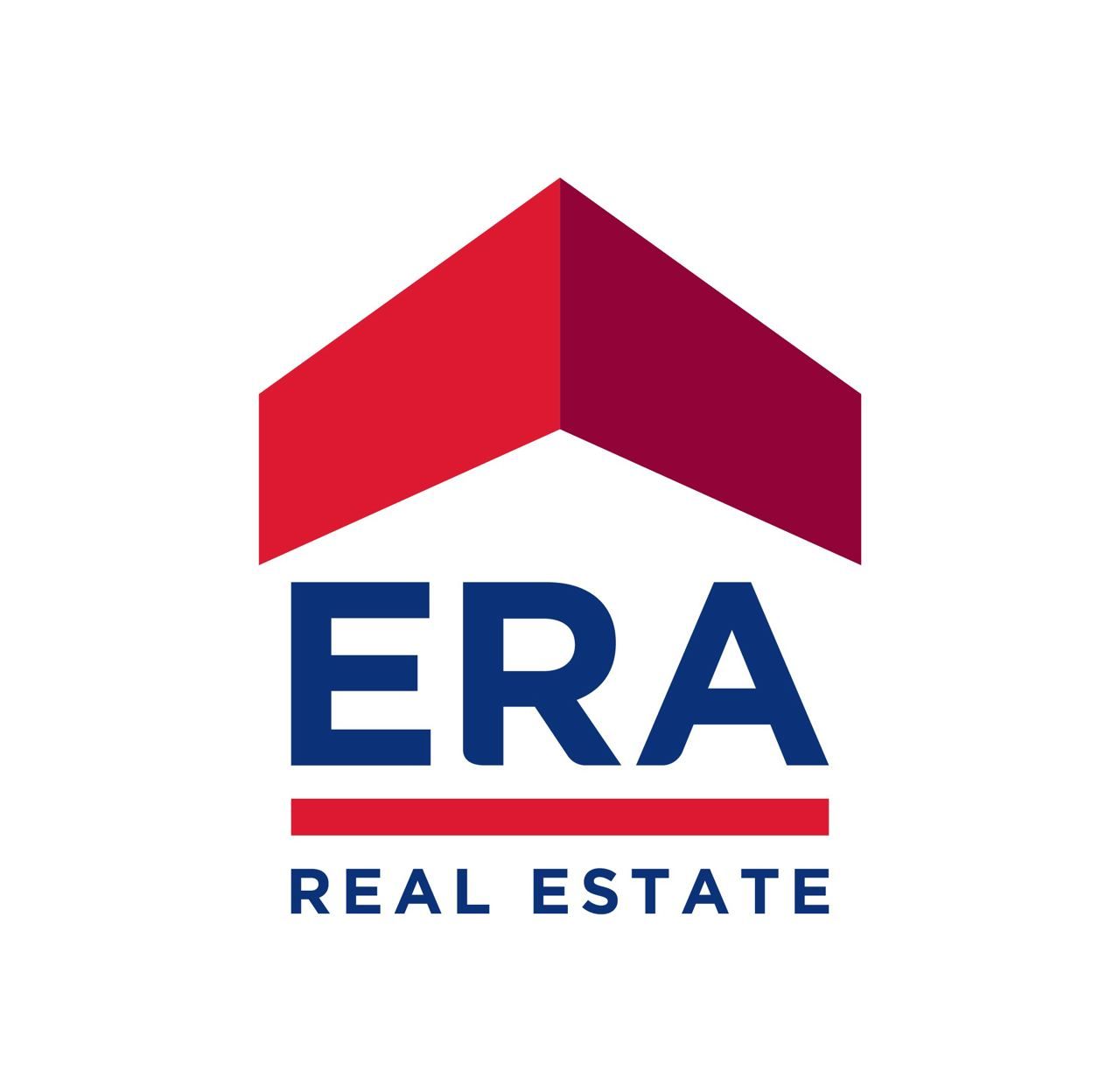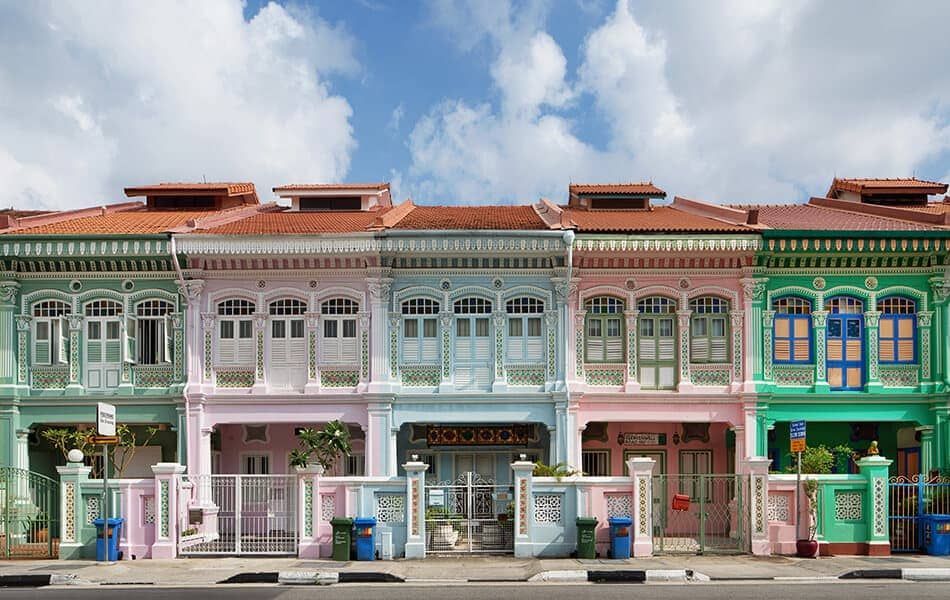ECs vs Condos vs HDBs in Singapore
ECs vs Condos vs HDBs in Singapore: A Comprehensive Analysis of Price, Popularity, and Investment Potential
Introduction
As someone who's spent over 30 years navigating Singapore’s property market, I’ve seen firsthand how the landscape has evolved. And right now, we're at a crucial point where understanding the differences between HDB flats, Executive Condominiums (ECs), and private condos is more important than ever.
Why? Because the decisions we make today are shaped by more than just immediate needs—they’re influenced by market trends, government policies, and long-term financial goals. The property market isn’t just about finding a place to live anymore; it’s about making a smart investment that will stand the test of time.
Take Executive Condominiums, for example. They often get overlooked, yet they offer unique advantages that many buyers might not fully appreciate. With rising property prices and changing regulations, the ECs, HDBs, and private condos debate isn’t just theoretical—it’s real, and it’s impacting the market in significant ways.
We need to talk about this now because the property decisions we make today could shape our financial future for years to come. Whether you’re buying your first home, upgrading, or considering an investment property, understanding the nuances of these different options is key to making an informed decision. And that’s where my experience comes in—to help you navigate these choices with confidence and insight.
1. Price Trends: HDBs, ECs, and Condos
HDB Flats
HDB flats are public housing units provided by the government, and they are the most affordable option for Singaporeans. According to data from the Urban Redevelopment Authority (URA) and Housing Development Board (HDB), the average resale price of a 4-room HDB flat in 2023 was around SGD 550,000.
Graph 1: Average Resale Price of HDB Flats (2019-2023)
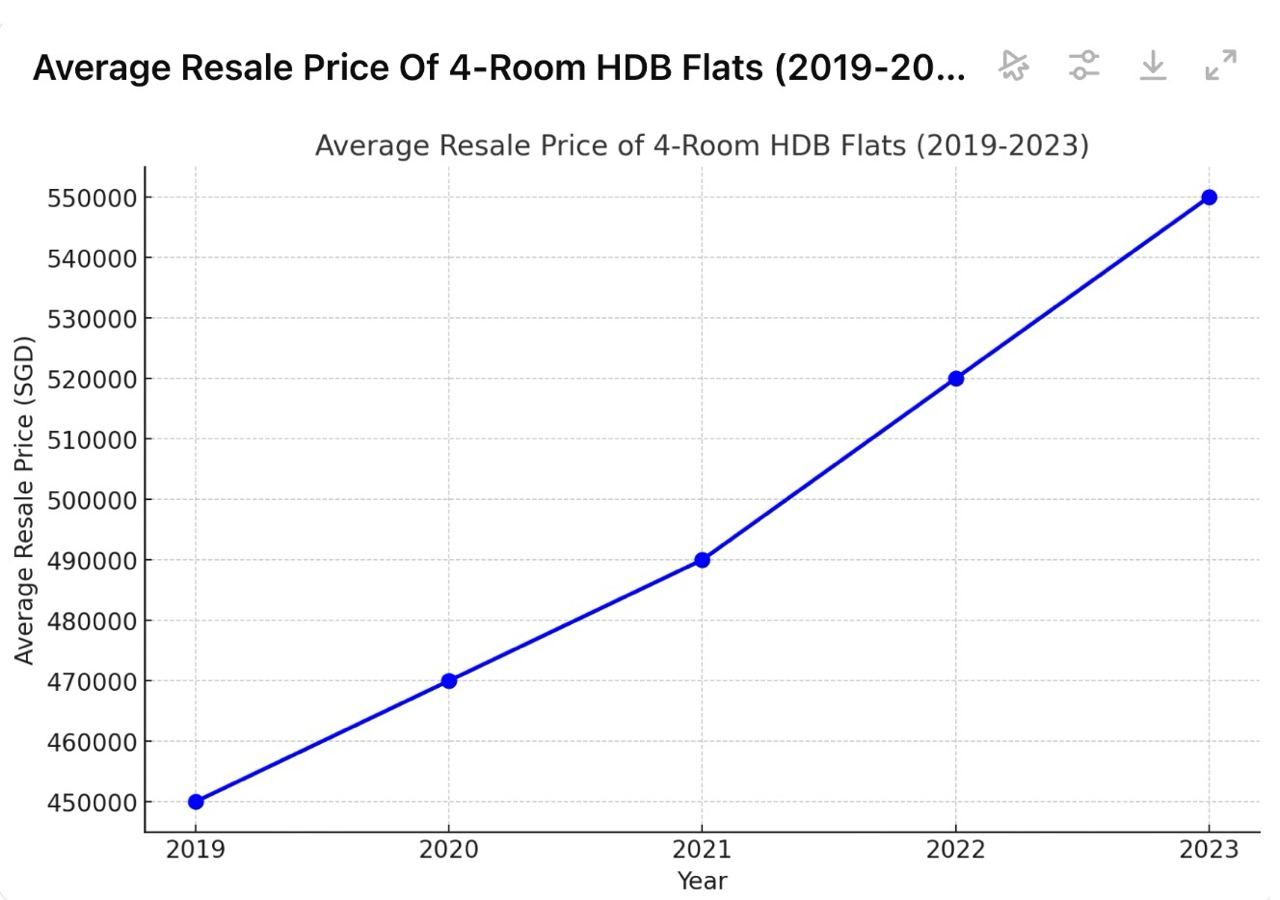
Executive Condominiums (ECs)
An EC is a unique housing option in Singapore that serves as a hybrid between public and private housing. Introduced by the government, ECs are initially sold with some subsidies, making them more affordable than private condominiums. However, they come with certain restrictions, such as an income ceiling of SGD 16,000, which limits eligibility to mid-income households.
ECs are subject to a Minimum Occupation Period (MOP) of 5 years, during which they cannot be sold or rented out entirely. After this period, ECs can be sold on the open market to Singaporeans and Permanent Residents (PRs). After 10 years, they become fully privatised, allowing foreign ownership and removing all government restrictions, making them comparable to private condos.
Despite these benefits, ECs are often perceived as less prestigious than private condos, and the restrictions during the initial years can deter some buyers. However, for those who qualify, ECs offer a pathway to private home ownership at a more affordable entry point (where the average price of new ECs in 2023 was around SGD 1,250 per square foot (psf), which is significantly lower than private condos), with the potential for significant capital appreciation and competitive rental yields after privatisation.
Graph 2: Average Price per Square Foot (PSF) for ECs and Private Condos (2019-2023)
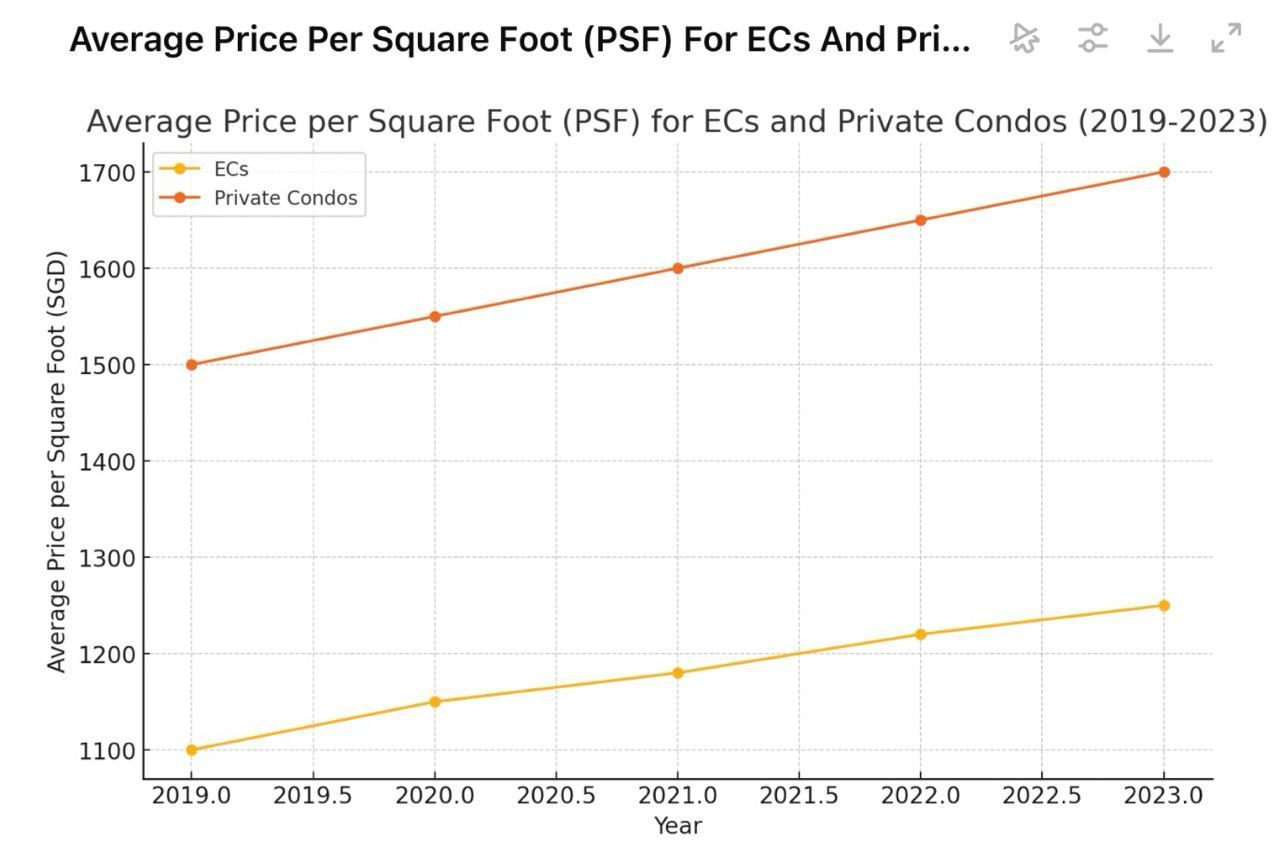
Private Condominiums
Private condos are fully private properties without government subsidies, and they are generally more expensive. In 2023, the average price for new private condos was around SGD 2,500 psf, almost double the cost of ECs.
2. Popularity: HDBs, ECs, and Condos
HDB Flats
HDB flats remain the most popular choice due to their affordability. Over 80% of Singaporeans live in HDB flats, making them the backbone of the housing market.
Executive Condominiums (ECs)
ECs are less popular due to their higher price compared to HDB flats and the additional restrictions. However, they appeal to a niche group of buyers who exceed the income ceiling for HDB flats but find private condos too expensive. The EC market saw around 3,000 units sold in 2023, a small fraction compared to the HDB market.
Executive Condominiums (ECs) often get overlooked for several reasons, despite offering a unique blend of public and private housing benefits. Here’s why:
1. Initial Eligibility and Ownership Restrictions
ECs come with initial eligibility requirements similar to HDB flats, such as income ceilings and citizenship criteria. These restrictions can deter buyers who are ineligible or prefer the flexibility of private condos, which are open to all Singaporeans, Permanent Residents (PRs), and foreigners.
For the first 5 years, ECs can only be sold to Singaporeans or PRs, limiting the potential resale market compared to private condos.
2. Perception as ‘Second-Class’ Housing
ECs are often perceived as a middle-ground option, neither fully public nor fully private. This hybrid status can lead to a perception that ECs are a "second-class" option compared to private condos, which are seen as more prestigious.
3. Delayed Privatisation
ECs only become fully privatised after 10 years, which means they can only be sold to foreigners after this period. This delayed privatisation can be a drawback for those looking for quicker liquidity or the ability to sell to a broader market.
4. Price Sensitivity
While ECs are priced lower than private condos, the upfront costs are still higher than HDB flats, which might make them less attractive to first-time homebuyers who are more price-sensitive. Additionally, buyers may prefer to stretch their budget for a private condo, which doesn’t have the same restrictions.
5. Market Awareness and Appeal
There’s often less market awareness about ECs compared to HDB flats and private condos. ECs also tend to have fewer amenities compared to high-end private condos, which may make them less appealing to those who prioritise lifestyle features.
6. Long-Term Investment Uncertainty
While ECs do have the potential for capital appreciation, particularly after privatisation, some buyers may be unsure about the long-term investment potential compared to private condos, which have a more established track record of value appreciation.
Despite these factors, ECs can be a smart choice for those looking to balance affordability with the benefits of private housing. However, they require a deeper understanding of the market and a long-term view, which is why they often get overlooked by those who prioritise immediate flexibility and status over strategic investment.
Private Condominiums
Private condos are popular among higher-income Singaporeans and expatriates. In 2023, approximately 10,000 new condo units were sold, reflecting strong demand despite higher prices.
3. Investment Potential: Should You Consider ECs?
Price Appreciation
ECs have shown substantial price appreciation after the 10-year mark when they become fully privatised. On average, ECs see a price increase of 30-40% upon privatisation, which can result in significant capital gains for early buyers.
Graph 3: Price Appreciation of ECs After Privatisation (2000-2023)
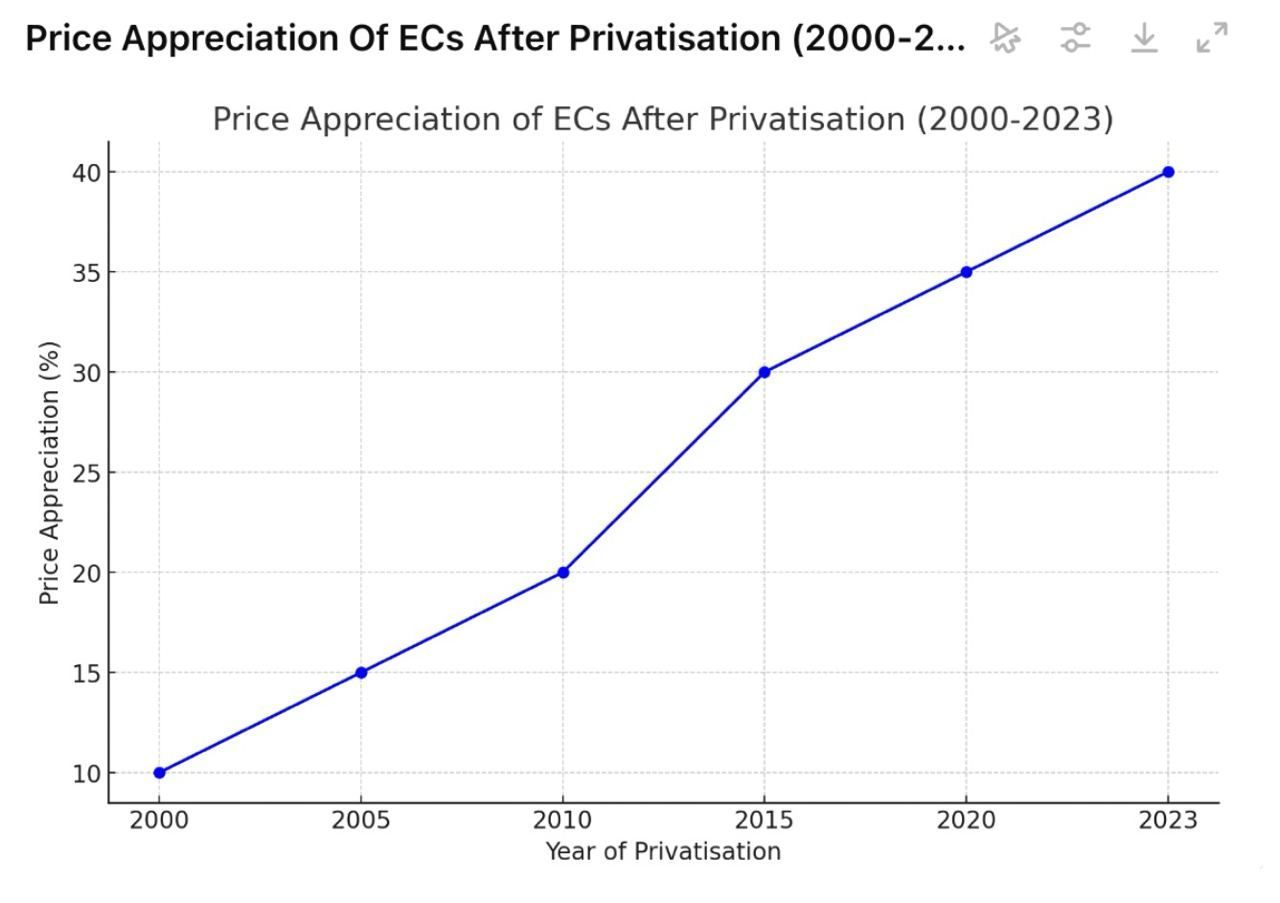
Rental Yield
ECs generally offer competitive rental yields compared to private condos. After privatisation, ECs are often rented out at similar rates to private condos, but with a lower initial purchase price, leading to higher yields.
ECs generally offer competitive rental yields compared to private condos due to several key factors:
1. Lower Initial Purchase Price
ECs are initially sold at a lower price compared to private condos, primarily because they are partly subsidised by the government and come with eligibility restrictions during the first few years. This lower entry cost means that owners have a smaller mortgage or financial outlay, which directly impacts the rental yield.
2. Comparable Rental Rates After Privatisation
Once an EC completes its 10-year Minimum Occupation Period (MOP) and becomes fully privatised, it can be sold to the broader market, including foreigners. ECs also command rental rates comparable to private condos. However, because the purchase price of an EC was initially lower, the rental income relative to the purchase price (rental yield) is often higher.
3. Demand for Affordable Rental Options
In a market where rental demand is high, especially in desirable locations, tenants may seek out properties that offer similar benefits to private condos but at a slightly lower rent. ECs, being priced more competitively, can attract a wide range of tenants, ensuring steady rental income for owners.
4. Capital Appreciation Post-Privatisation
After the 10-year mark, when ECs become fully privatised, they often see significant capital appreciation, but their purchase price remains below that of private condos. This appreciation, combined with stable or rising rental rates, further enhances the rental yield compared to condos that might have been purchased at a higher initial price.
These factors make ECs an attractive option for investors looking for properties that offer solid rental returns with a lower upfront investment.
Graph 4: Average Rental Yield for ECs vs Condos (2019-2023)
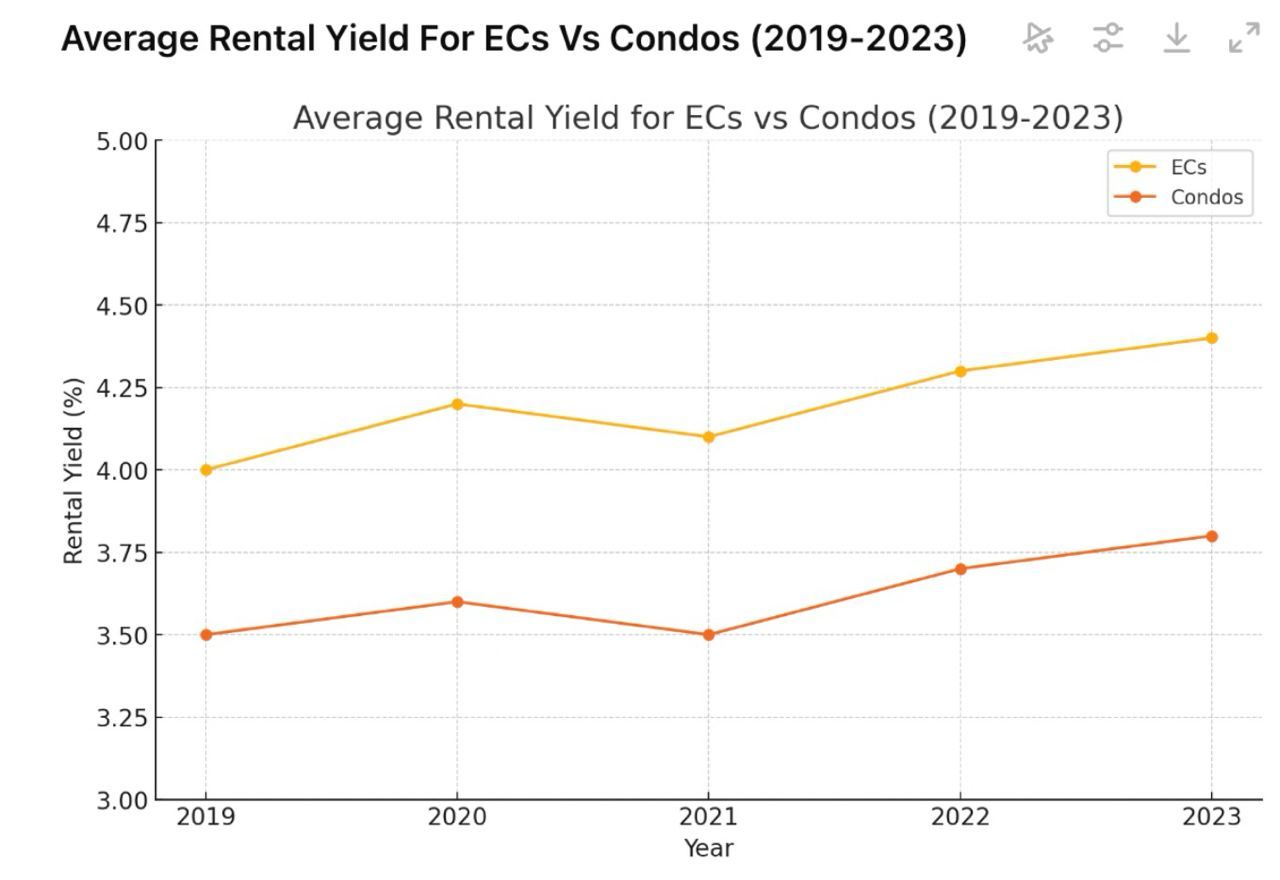
4. Conclusion: So, are ECs a Good Investment?
ECs present a compelling investment opportunity for those who meet the eligibility criteria and are willing to wait for the MOP and privatisation period. The significant price appreciation post-privatisation and competitive rental yields make ECs an attractive option for long-term investors. However, for those seeking immediate liquidity or without the need for subsidies, private condos might be a better fit.
Check out the video underlining these differences here.
Why Choose Mike Parikh? Navigating the complexities of the real estate market requires expertise and experience. With over 30 years in the industry, Mike Parikh offers unparalleled insights and a strategic approach to help you make the best decisions. Whether you're looking to sell or invest, Mike’s personalised service ensures a seamless and profitable experience.
For more information and to explore your options, call Mike at 93838818 today.
